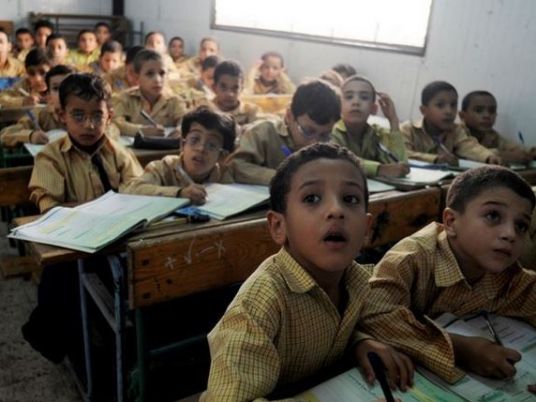
Roughly 93 percent of Egyptian children aged one to 14 years old suffer from violence, said Khalid Darwish, advisor to the National Council for Childhood and Motherhood.
Prosecution is one of the most important pillars in eliminating child abuse, he added, stressing the importance of cooperation between the council and Public Prosecution in this regard.
During a round-table discussion organized by the Supreme Council for Media Regulation and UNICEF on “Discussing the Role of Media in Promoting Positive Education and Ending Violence and Abuse against Children”, Darwish pointed to the Public Prosecution’s role in the murder case of teenager Mahmoud al-Banna.
According to a study prepared by the National Council for Childhood and Motherhood, violence is too readily accepted as a means of raising children up into supposedly strong adults.
The study shows that children are subjected to violence in places that are supposed to be safe, such as home, school or clubs, and exposed to violence from people who are supposed to care for them, such as parents or teachers.
He added that 65 percent of children between 13 and 14 years old are beaten by objects like sticks or belts. Psychological violence reaches 75 percent in adolescence.
According to the study, 70 percent of teenagers are exposed to violence at home, compared to 14 percent in schools.
The study pointed out that one in three children were subjected to violence through social media.
Less than 20 percent of parents are not familiar with the Child Law, the study showed.
Female circumcision recorded a high rate of 61 percent at the age group of 15 to 17 years old.
Eleven percent of girls aged 15 to 19 are married or have been married at least once.
Seventy percent of parents do not consider beating as detrimental children, but want another alternative to discipline.
Darwish stressed the need to strengthen national efforts to eliminate child abuse and provide adequate support for children, as well as to conduct more in-depth studies of disciplinary methods, and sensitize families to positive disciplinary methods.
He stressed the importance of increasing media campaigns to raise awareness of child rights and the risks of violence against children.
Edited translation from Al-Masry Al-Youm




